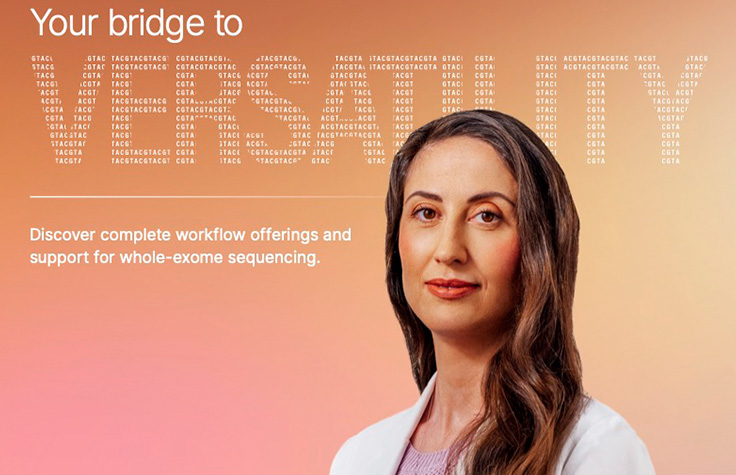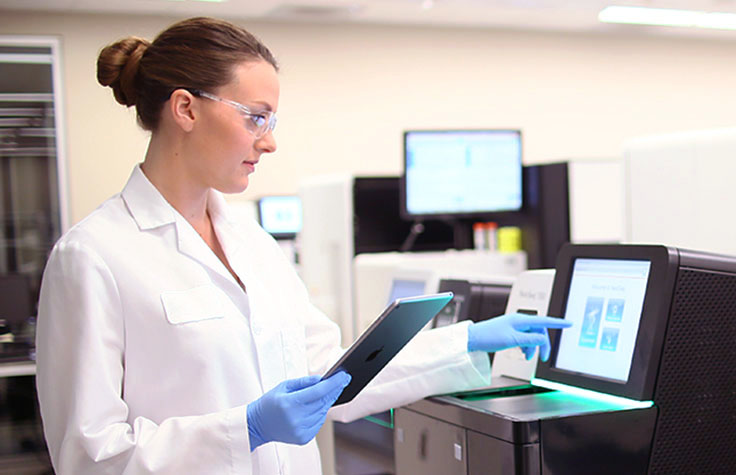Rare Disease Targeted Sequencing
Whole-exome sequencing for rare diseases
Efficiently test known disease-causing genes
Benefits of targeted sequencing for rare diseases
Whole-exome Sequencing (WES) is a targeted sequencing approach for comprehensive NGS analysis, enabling labs to focus resources on genes likely to be associated with the phenotype. WES targets protein-coding regions, which comprise less than 2% of the genome but contain ~85% of known disease variants. By producing a manageable data set, WES allows for focused analysis and competency building.
Implementation of WES in labs can provide a broad view of coding variants, enhance data management with scalable interpretation, and enable greater opportunities for re-analysis or discovery than chromosomal microarrays or gene panels alone. By using a whole-exome backbone, labs can deliver diverse and comprehensive virtual panels that simplify workflows, while being able to decrease sequencing costs and allow the execution of immediate reflex analyses.


Whole-exome solutions
Explore comprehensive workflow solutions for whole-exome sequencing including world-class support from Illumina.
Download BrochureRelated Solutions
Illumina DNA Prep with Exome 2.0 Plus Enrichment
A high-performance, fast, and complete whole-exome sequencing kit including library prep and hybridization reagents, a comprehensive exome probe panel, clean up/size selection beads, and indexes.
Illumina DRAGEN Bio-IT Platform
The Illumina DRAGEN Bio-IT Platform provides accurate, comprehensive, and efficient analysis of next-generation sequencing data.
NextSeq 2000 System
This sequencer introduces over 75 breakthrough innovations to deliver a faster, more intuitive experience in next-generation sequencing.
WGS for rare disease
While targeted sequencing can identify important genomic insights, whole-genome sequencing (WGS) is the most comprehensive assay for rare disease genomics.
Recent genetic & rare disease articles

What the diagnostic odyssey looks like—and how we can end it
Closing the knowledge gap for health care providers and accelerating access to whole-genome sequencing

Using NGS to study rare undiagnosed genetic disease
Whole-exome and transcriptome sequencing prove beneficial in uncovering mutations and pathways associated with rare disease.

Bridging the diagnosis gap for Canada’s Indigenous children
The Silent Genomes Project is building a first-of-its-kind variant library for First Nations, Inuit, and Métis populations
Precision health
Personalized medicine programs can help match patients to treatments, reduce disease burden, increase survival rates, and reduce the cost of care.
Learn More
References
- Hughes EE, Stevens CF, Saavedra-Matiz CA, et al. Clinical sensitivity of cystic fibrosis mutation panels in a diverse population. Hum Mutat. 2016;37(2):201-208. doi:10.1002/humu.22927